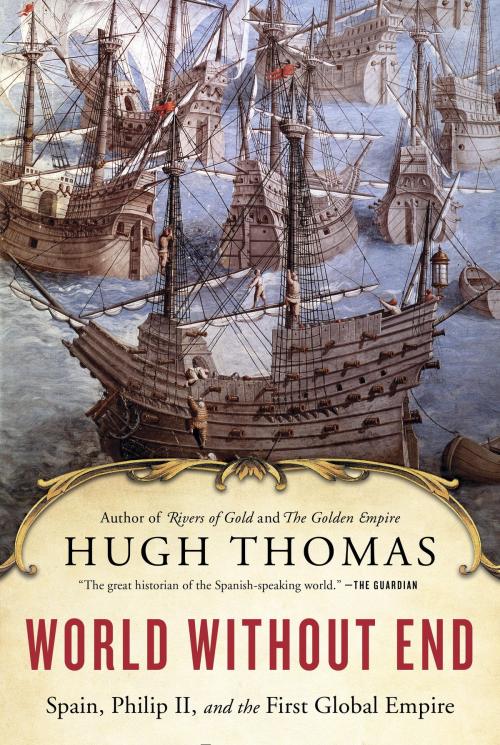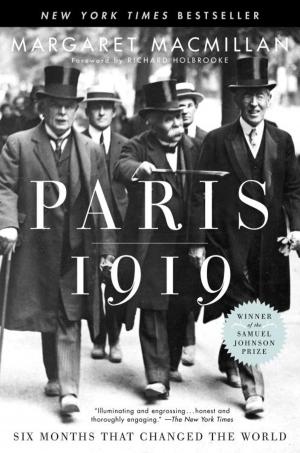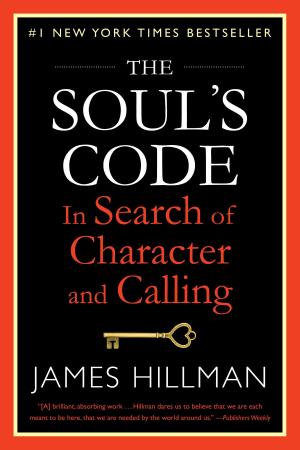World Without End
Spain, Philip II, and the First Global Empire
Nonfiction, History, Spain & Portugal, Military, Americas| Author: | Hugh Thomas | ISBN: | 9780812998122 |
| Publisher: | Random House Publishing Group | Publication: | August 11, 2015 |
| Imprint: | Random House | Language: | English |
| Author: | Hugh Thomas |
| ISBN: | 9780812998122 |
| Publisher: | Random House Publishing Group |
| Publication: | August 11, 2015 |
| Imprint: | Random House |
| Language: | English |
Following Rivers of Gold and The Golden Empire andbuilding on five centuries of scholarship, World Without End is the epic conclusion of an unprecedented three-volume history of the Spanish Empire from “one of the most productive and wide-ranging historians of modern times” (The New York Times Book Review).
The legacy of imperial Spain was shaped by many hands. But the dramatic human story of the extraordinary projection of Spanish might in the second half of the sixteenth century has never been fully told—until now. In World Without End, Hugh Thomas chronicles the lives, loves, conflicts, and conquests of the complex men and women who carved up the Americas for the glory of Spain.
Chief among them is the towering figure of King Philip II, the cultivated Spanish monarch whom a contemporary once called “the arbiter of the world.” Cheerful and pious, he inherited vast authority from his father, Emperor Charles V, but nevertheless felt himself unworthy to wield it. His forty-two-year reign changed the face of the globe forever. Alongside Philip we find the entitled descendants of New Spain’s original explorers—men who, like their king, came into possession of land they never conquered and wielded supremacy they never sought. Here too are the Roman Catholic religious leaders of the Americas, whose internecine struggles created possibilities that the emerging Jesuit order was well-positioned to fill.
With the sublime stories of arms and armadas, kings and conquistadors come tales of the ridiculous: the opulent parties of New Spain’s wealthy hedonists and the unexpected movement to encourage Philip II to conquer China. Finally, Hugh Thomas unearths the first indictments of imperial Spain’s labor rights abuses in the Americas—and the early attempts by its more enlightened rulers and planters to address them.
Written in the brisk, flowing narrative style that has come to define Hugh Thomas’s work, the final volume of this acclaimed trilogy stands alone as a history of an empire making the transition from conquest to inheritance—a history that Thomas reveals through the fascinating lives of the people who made it.
Praise for World Without End
“Readers will not find a more reliable guide to the maturing Spanish Empire. . . . World Without End reminds us that the far-flung Spanish Empire was the work of many minds and hands, and by the end their myriad stories carry a cumulative charge.”—The New York Times Book Review
“A sweeping, encyclopedic history of the arrogance, ambition, and ideology that fueled the quest for empire.”***—Kirkus Reviews***
“Literary power is a vital part of a great historian’s armoury. As in his earlier books, Thomas demonstrates here that he has this in abundance.”***—Financial Times***
“A vivid climax to Hugh Thomas’s three-volume history of imperial Spain.”***—The Telegraph***
“Thomas clearly excels in the Spanish history of religion, politics, and culture, [and] successfully shows that Spain’s global ambition knew no bounds.”—Publishers Weekly
Following Rivers of Gold and The Golden Empire andbuilding on five centuries of scholarship, World Without End is the epic conclusion of an unprecedented three-volume history of the Spanish Empire from “one of the most productive and wide-ranging historians of modern times” (The New York Times Book Review).
The legacy of imperial Spain was shaped by many hands. But the dramatic human story of the extraordinary projection of Spanish might in the second half of the sixteenth century has never been fully told—until now. In World Without End, Hugh Thomas chronicles the lives, loves, conflicts, and conquests of the complex men and women who carved up the Americas for the glory of Spain.
Chief among them is the towering figure of King Philip II, the cultivated Spanish monarch whom a contemporary once called “the arbiter of the world.” Cheerful and pious, he inherited vast authority from his father, Emperor Charles V, but nevertheless felt himself unworthy to wield it. His forty-two-year reign changed the face of the globe forever. Alongside Philip we find the entitled descendants of New Spain’s original explorers—men who, like their king, came into possession of land they never conquered and wielded supremacy they never sought. Here too are the Roman Catholic religious leaders of the Americas, whose internecine struggles created possibilities that the emerging Jesuit order was well-positioned to fill.
With the sublime stories of arms and armadas, kings and conquistadors come tales of the ridiculous: the opulent parties of New Spain’s wealthy hedonists and the unexpected movement to encourage Philip II to conquer China. Finally, Hugh Thomas unearths the first indictments of imperial Spain’s labor rights abuses in the Americas—and the early attempts by its more enlightened rulers and planters to address them.
Written in the brisk, flowing narrative style that has come to define Hugh Thomas’s work, the final volume of this acclaimed trilogy stands alone as a history of an empire making the transition from conquest to inheritance—a history that Thomas reveals through the fascinating lives of the people who made it.
Praise for World Without End
“Readers will not find a more reliable guide to the maturing Spanish Empire. . . . World Without End reminds us that the far-flung Spanish Empire was the work of many minds and hands, and by the end their myriad stories carry a cumulative charge.”—The New York Times Book Review
“A sweeping, encyclopedic history of the arrogance, ambition, and ideology that fueled the quest for empire.”***—Kirkus Reviews***
“Literary power is a vital part of a great historian’s armoury. As in his earlier books, Thomas demonstrates here that he has this in abundance.”***—Financial Times***
“A vivid climax to Hugh Thomas’s three-volume history of imperial Spain.”***—The Telegraph***
“Thomas clearly excels in the Spanish history of religion, politics, and culture, [and] successfully shows that Spain’s global ambition knew no bounds.”—Publishers Weekly















